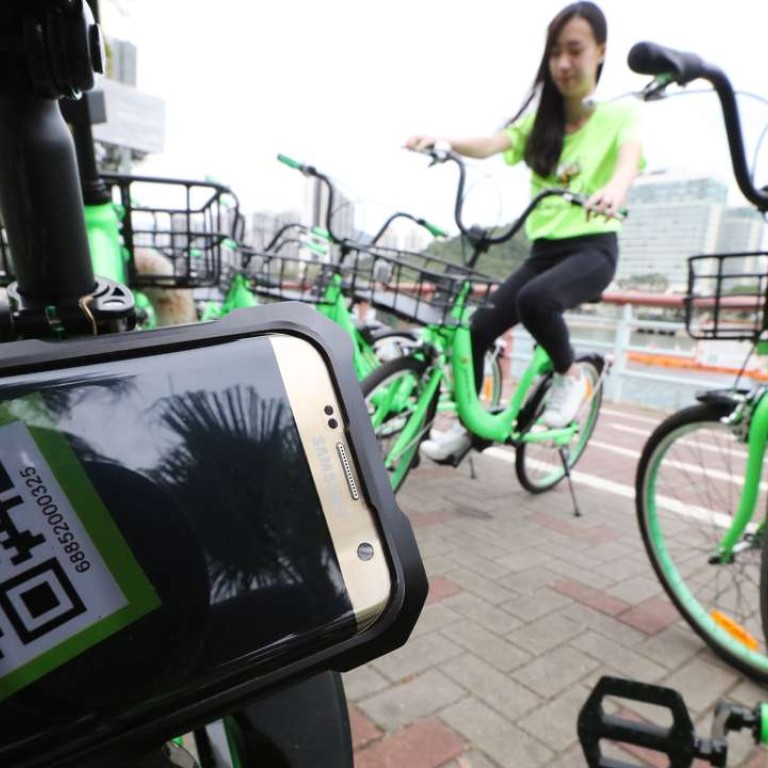
All must get on board for rent-a-bike scheme to work
Hong Kong is ideally compact for bike sharing, but singularly lacking in the facilities, regulation and the culture needed to make it work
The tracks in Sha Tin, Tai Po and Ma On Shan, where the first 400 bicycles have been distributed, belong to a network established with recreation in mind. Otherwise, even in the New Territories, it is not clear that safe road conditions are in place.
A post shared by Gobee Bike (@gobee.bike) on Apr 18, 2017 at 7:17pm PDT
The new service, introduced by start-up Gobee.bike, follows the success of mainland counterparts such as Ofo, which operates in 50 cities. Cyclists can rent a solar-powered bike for HK$5 a half-hour, compared with all-day leisure rentals of HK$40, by scanning a QR code, after logging into a mobile application, registering their credit card and paying a deposit of HK$399. An interactive map will locate the nearest available bicycle. Founder Raphael Cohen, a Hong Kong-based entrepreneur, says the city has huge potential for the business model, and expects the number of bikes to multiply rapidly.
Given the environmental and health benefits of the revival of bicycle transport elsewhere, government planners should consider keeping the potential demand for bike lanes in mind, particularly in the design of new towns. If the service takes off, it could stimulate demand for more provision for bicycles in older areas. Ironically, the city is ideally compact for bike sharing, but singularly lacking in the facilities, regulation and the culture needed to make it work.

